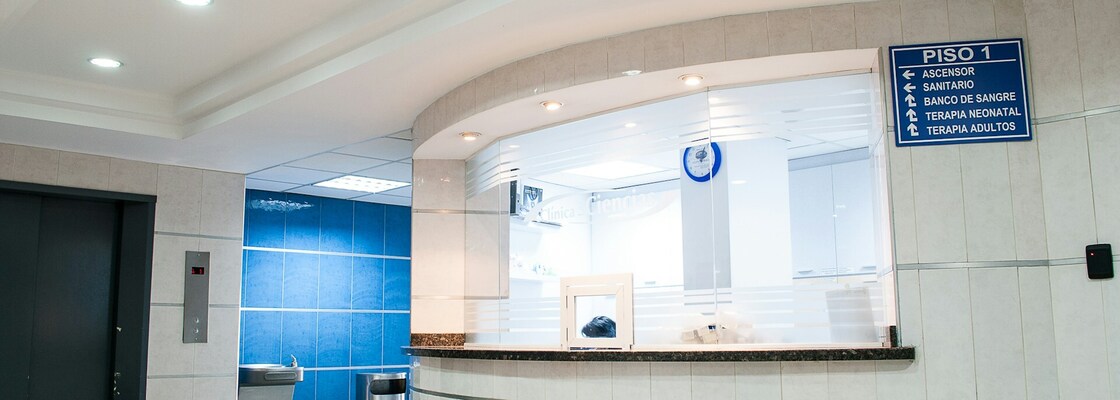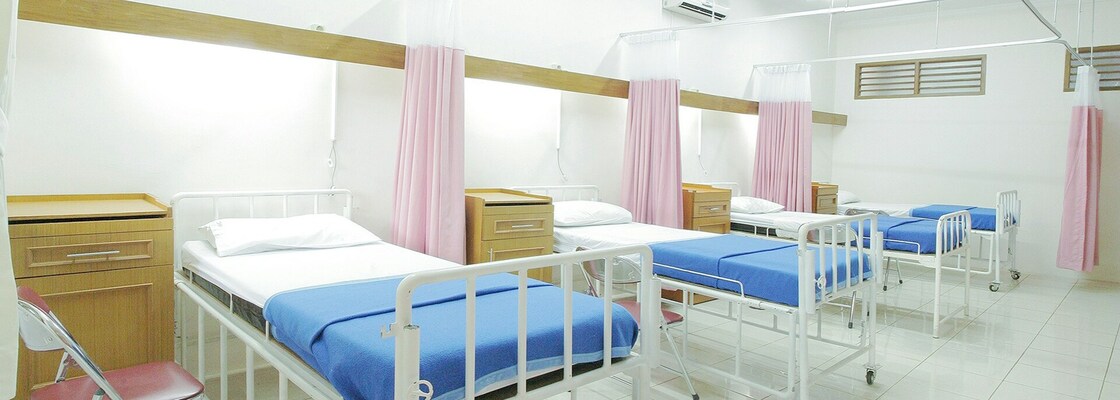When moving to a new country, two of the most important aspects to consider are the country’s healthcare system and health insurance. Portugal, with its enchanting charm and appeal, has become a popular destination for expats from all walks of life. However, to fully enjoy life in Portugal, it’s essential to understand the practicalities of moving to a new country, such as how to access healthcare services.
This comprehensive Portugal healthcare guide for expats will provide you with everything you need to know about healthcare in Portugal. It includes an overview of both public and private healthcare options, your eligibility to access healthcare, the role of primary care
doctors and family physicians, the benefits of private health insurance plans, and emergency care considerations
An Overview of the Portuguese Healthcare System in 2024

According to the World Health Organization, the healthcare improvements made in the European Union over the past few decades has significantly increased life expectancy in Portugal. For instance, life expectancy at birth improved from 76.6 years in 2000 to 81.2 years in 2022, marking a substantial 4.6-year increase.
Furthermore, Statista’s 2023 ranking places Portugal’s health system 40th out of 195 countries. In July 2024, the Portuguese National Statistics Institute (INE) reported a 4.7 percent increase in health expenditure in 2023, attributed to the growth in hospital activities (both public and private), ambulatory health care providers, and research and development in the health sector.
This increased expenditure is associated with better health outcomes, highlighting the system’s prioritization of the population’s nutritional healthcare and physical and mental well-being. Portugal’s healthcare system is excellent compared to other European countries, ranking 14th in Numbeo’s 2024 Health Care Index above Germany at 15th and Switzerland and 16th. Healthcare facilities across the country are well-equipped, contributing to the overall efficiency and quality of care provided.
In Portugal, both the private healthcare system and the public healthcare system are highly regarded. However, understanding the basics of the Portuguese healthcare system is essential for confidently navigating medical needs and accessing health services in the country.
The healthcare system operates under a hybrid model, with excellent services available in both public and private systems. The Health Regulatory Entity (ERS), an independent body, oversees the public, social, and private healthcare systems and ensures quality and compliance across all providers.
Are foreigners eligible for Portuguese public healthcare
If you are a Portuguese citizen or legal resident registered on the social security system, you are eligible for care from the public Portuguese health system. Portugal provides state healthcare that is free at public health centers and hospitals for citizens and legal residents.
While medical emergency care is free, other Portugal healthcare system services like consultations, emergency room visits, and ambulance services usually incur a small fee. If you cannot afford private health insurance or private medical care, the public health system is a viable option, though not all health centers offer full coverage.
The Portuguese healthcare system includes local health centers and hospitals, and some people opt for private medical insurance for more streamlined services. Residents, including expats with a residence permit, must be registered at a local health center (Centro de Saúde) and hold a User’s Card, which is obtained by presenting proof of residence. Non-EU residents also need a social security number.
Additionally, residents registered with the National Health Service and Social Security system can apply for a European Health Insurance Card (CESD) through the Portuguese Social Security Directory. This card provides healthcare access during temporary stays in other EU member states.
Portugal's Public Healthcare System

Portugal’s national healthcare system, the Serviço Nacional de Saúde (SNS), provides comprehensive medical services to its citizens and legal residents. The SNS, publicly financed and managed, ensures universal health coverage, with basic healthcare administered through local and regional health centers and public hospitals. Although dental services are not included, the SNS covers nearly all other medical care.
Children under 18 and people over 65 receive free healthcare, while others may need to pay a patient contribution that varies depending on the service. For example, general practitioner or family doctor consultations are less expensive than emergency room visits or specialized tests like X-rays and scans.
To access public healthcare services, residents must register with their local council (junta de freguesia) to confirm their eligibility in the SNS. Despite some differences in the level of English spoken compared to private healthcare, public health centers have improved significantly in recent years. The Health Regulatory Entity (ERS), an independent body, oversees the public healthcare system, ensuring quality and compliance.
The SNS allows citizens and residents to access state-provided medical services, ensuring that everyone is treated equally. The system includes five regional health administrations, with Madeira and the Azores having their own health systems. Overall, Portugal’s public healthcare system provides efficient and accessible healthcare to its population, reflecting its commitment to universal health coverage.
Portugal's Private Healthcare System

In Portugal, private health insurance is a popular choice for both locals and expats seeking quick, easy, high-quality medical services. The private healthcare system in Portugal offers individuals and dependent family members with private medical insurance access to a wide array of healthcare providers, including private doctors, private hospitals, and specialized healthcare facilities.
The cost of private healthcare in Portugal is significantly lower than in many other countries, such as the USA. Basic private health insurance plans are available for less than €120 per month. However, the price of insurance can vary depending on factors like age and pre-existing health conditions. Expats can enjoy the benefits of a private healthcare system that includes pharmaceutical products, diagnostic technologies, private practice services, and other medical costs.
Public-private partnerships have played a crucial role in enhancing Portugal’s healthcare landscape. These partnerships have led to the creation of new hospitals, the establishment of long-term care networks, and the reorganization of primary care services.
The average annual cost for private health insurance in Portugal is around €400, with more comprehensive plans costing approximately €1,000. While private healthcare costs are relatively low, some services may require upfront payment, with the option to seek reimbursement later. Importantly, most private healthcare providers in Portugal are proficient in English, ensuring clear communication and quality care.
Finding Health Advice and Hospital Care in Emergency Situations

In emergency situations, finding health advice and hospital care is crucial. If you require assistance, phone the European Emergency Number 112, which connects you to ambulance, police, and fire services.
Additionally, you can call the SNS public health services information hotline at 808242424, available 24/7 in English, free of charge. Emergency departments in Portugal are similar to those in the US, featuring semi-private, curtained-off areas.
While emergency healthcare in Portugal is free without reciprocity or NHS coverage, other services are fully priced and may require immediate payment. Rest assured, hospital care will be provided, if necessary, but charges apply if not covered by the SNS, private insurance, or reciprocal agreements.
Mental Health Services in Portugal

In April 2024, the Portuguese National Statistics Institute (INE) revealed that 34.3 percent of Portuguese individuals aged 16 and over exhibited symptoms of generalized anxiety, with 11.1 percent experiencing more severe symptoms. Despite the provision of mental healthcare services through hospital and health center teams, Portugal faces a significant shortage of mental health specialists.
The system is less developed than in many other countries. For mental health support, the GP is the initial contact within the SNS, offering services ranging from medication prescriptions to specialist referrals. However, comprehensive mental health care often necessitates private health insurance for broader service access.
Pharmacies and Medication in Portugal

Overall, obtaining medication in Portugal is straightforward and affordable due to the extensive network of pharmacies and available subsidies. In Portugal, pharmacies, known locally as farmácias, are easily identifiable by the big green cross on their shopfronts.
These farmácias are widely distributed throughout the country, ensuring convenient access to medications. Many medicines, including over-the-counter options, are subsidized if obtained with a prescription, making them quite cost-effective. It’s advisable to remember the generic names of any medications or prescription drugs you might need, as brand names can differ from those in other countries.
Maternity and Childcare Services

In Portugal, maternity and childcare services are provided through hospitals, health centers, and clinics. The Portuguese National Health Service (SNS) ensures that maternity care is accessible to expectant mothers, who typically receive care at a public hospital near their residence. Private medical care is also available for those with health insurance.
Prenatal care begins at the hospital, where the mother-to-be is given a pregnancy booklet to track her medical information throughout the pregnancy. Although maternity wards offer prenatal classes, these are generally not subsidized by public health insurance. Midwives are available to assist during childbirth.
Gynecologists, who can be accessed through a GP referral, work in health centers and clinics to offer health advice and routine examinations. Children’s healthcare is covered by the SNS, which is funded through social security contributions from their parents or guardians.
Children receive regular health checks, screenings, vaccinations, and nutritional healthcare. Portugal’s national vaccination system includes protection against diseases like Hepatitis B, Diphtheria, Tetanus, Pertussis, Polio, Measles, Mumps, and Rubella.
Health Services for Retirees in Portugal

In January 2024, Travel and Leisure reported that Portugal has the most affordable health care in the world, making it perfect for retirees. If you purchase private health insurance in Portugal, you will be able to schedule an appointment, receive a consultation in less than 30 minutes, and speak with a specialist if you would like to.
Additionally, all medical, dental, and pharmaceutical services are significantly less expensive in Portugal than it is in the United States. If you are a resident of Portugal, you will have access to the national health service and will need only to pay minimum healthcare costs for treatment. The country’s affordability and quality of life, excellent emergency services, and public system make Portugal an attractive destination for retirees.
International Health Insurance Requirements When Moving to Portugal

International health insurance requirements are a critical consideration when moving to Portugal, especially for those seeking permanent residence. Non-EU/EFTA residents can apply for Portuguese permanent residence after five years of legal residency, but they must fulfill several criteria, including private health insurance requirements.
Applicants must provide a valid residence visa, passport, proof of finances, accommodation, and a criminal record certificate. A crucial part of this process is having travel insurance with medical treatment coverage. This ensures that residents can visit public hospitals or private hospitals for primary healthcare, emergency services, and dental care costs.
A private insurance policy is often a popular option for accessing the private system, which many prefer for its main hospital care providers. A global health insurance card can also be useful for seeing healthcare providers.
Portugal’s healthcare system includes both public and private sectors. The vast majority of residents rely on the public system for general health needs. However, having private insurance can be beneficial for accessing more specialized or faster services.
Find Your Dream Property with BE Global
BE Global Properties is the discerning property investors’ gateway to meticulously curated properties that transcend ordinary listings. Look no further when searching for your next dream home or investment property in the Portuguese luxury real estate market.
Explore our exclusive listings and work with our experts who offer market insights for smart investment choices and exceptional customer service to find the property investment perfectly tailored for your lifestyle.
Contact BE Global Properties today and start your journey to discover the property of your dreams.
Frequently Asked Questions About Healthcare in Portugal
Is healthcare in Portugal good?
Yes, healthcare in Portugal is good. Statista’s 2023 ranking places Portugal’s health system 40th out of 195 countries. Additionally, Portugal’s healthcare system is excellent compared to other countries, ranking 21st in Numbeo’s 2024 Health Care Index.
Is healthcare free in Portugal?
Healthcare in Portugal is partially free. The national healthcare service, Serviço Nacional de Saúde (SNS), is entirely free for children under 18 and individuals over 65 who are Portuguese residents. Alternatively, legal residents can access the SNS and are charged minimal fees for additional healthcare services such as x-rays and specialist visits. In addition to this, private healthcare, although not free, is quite affordable compared to other Western European countries.
How much does healthcare cost in Portugal?
Costs can vary based on age and health conditions. Healthcare costs in Portugal are relatively low compared to many countries. Basic private health insurance plans start at less than €120 per month, with average annual costs around €400 and comprehensive plans around €1,000. Private healthcare includes pharmaceuticals, diagnostics, and private practices.
How much does it cost to see a doctor in Portugal?
An appointment with a healthcare provider in Portugal costs an average of €40 to €50.
Are you entitled to Portuguese healthcare?
You are entitled to Portuguese healthcare if you are a Portuguese citizen or legal resident registered on the social security system. Public healthcare is free at health centers and hospitals. Non-EU residents need a social security number, and residents can also apply for a European Health Insurance Card for EU travel.
Do healthcare professionals in Portugal speak English?
Yes, healthcare professionals in Portugal generally speak English proficiently. Whether in public or private healthcare settings, doctors and medical staff are well-equipped to communicate effectively with expats.
Where does Portugal rank in healthcare?
Portugal ranks 40th out of 195 countries in Statista’s 2023 healthcare ranking. Additionally, it is highly regarded, ranking 21st in Numbeo’s 2024 Health Care Index, indicating an excellent healthcare system compared to other European nations.
Which EU country has the best healthcare?
According to Numbeo’s 2024 healthcare index by country, the Netherlands ranks in first place for the best healthcare services in the European Union.
Is there Portugal healthcare for tourists?
Healthcare for tourists in Portugal requires visitors to have medical insurance covering emergency treatment. Non-EU citizens must have sufficient coverage, and UK citizens can use the Global Health Insurance Card (GHIC). Schengen Visa holders need insurance with €30,000 coverage. Travelers without a visa are advised to have insurance for medical emergencies while in Portugal.
Can US citizens get healthcare in Portugal?
US citizens can access healthcare in Portugal if they become legal residents and obtain a National Health Service (SNS) user number. This allows them to receive medical assistance at public SNS units. Non-residents must have valid health insurance, as Portugal does not provide free medical treatment to visitors under European Union regulations.



